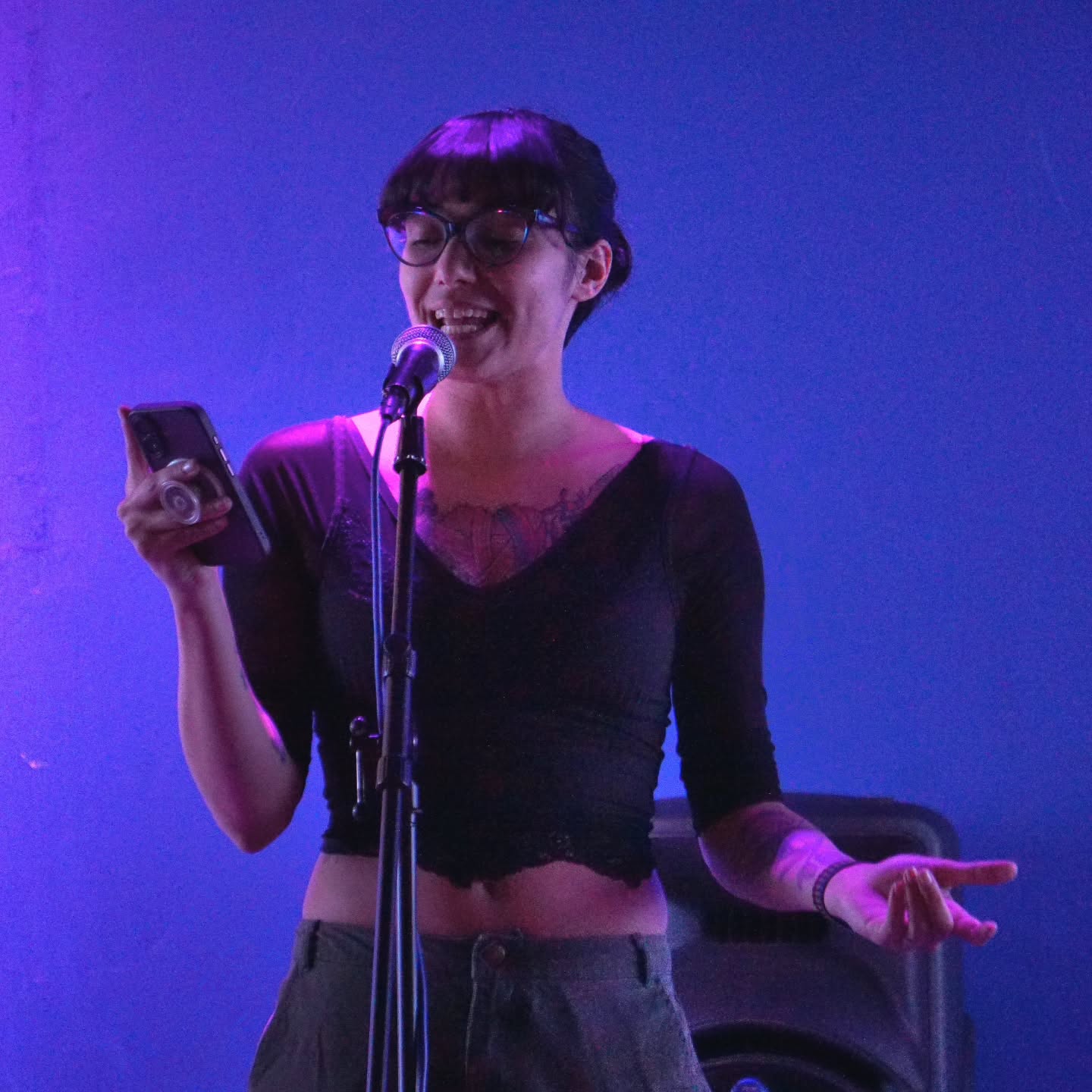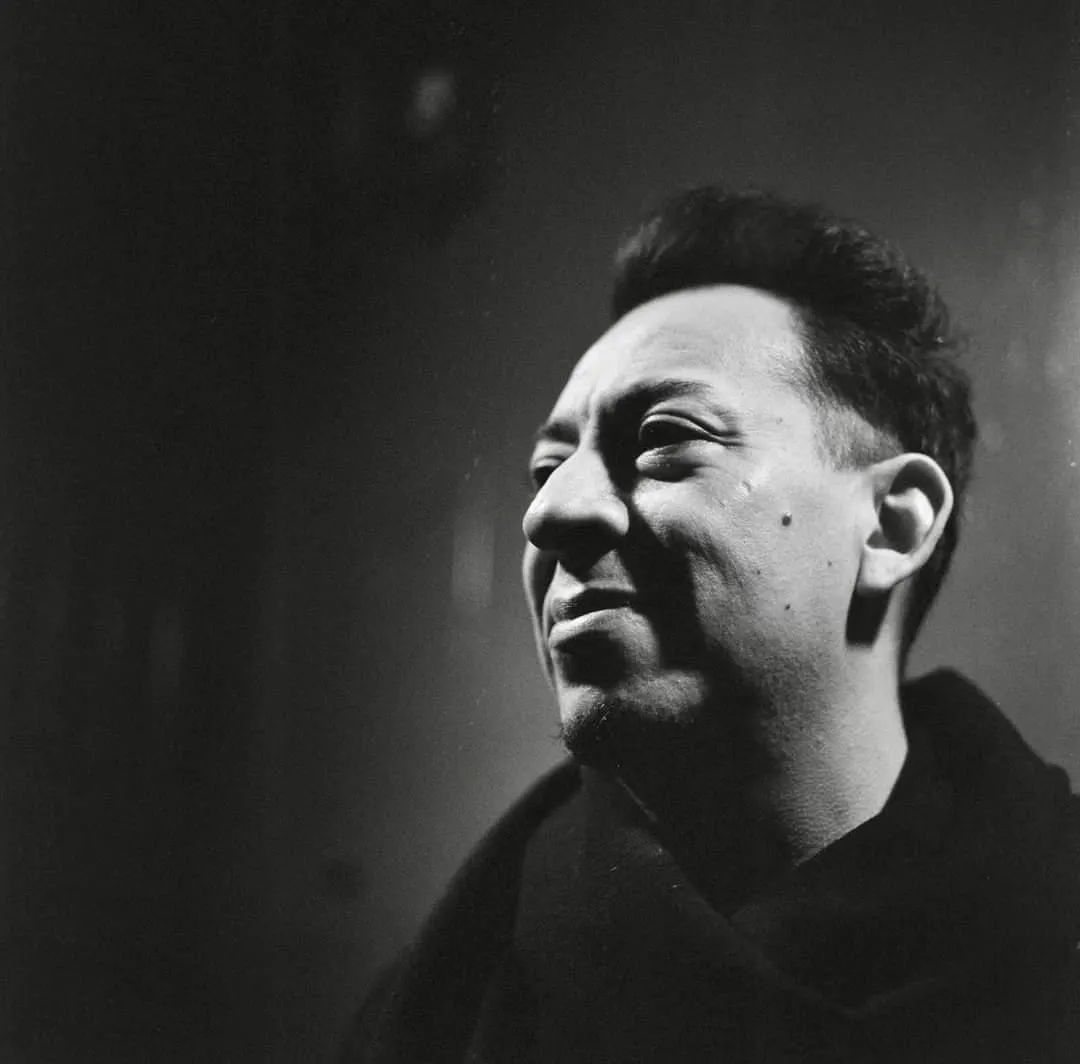Doc Luben: A Powerhouse of Performance Poetry in Arizona and Beyond
Doc Luben is a dynamic voice in American performance poetry—a writer, educator, stage actor, and slam champion whose impact spans from the comic book conventions of Phoenix to the literary circles of Portland and Tucson. Known for his emotionally charged storytelling, razor-sharp wit, and captivating stage presence, Doc is a two-time Poetry Slam Champion of Portland, Oregon and a finalist at the 2013 Individual World Poetry Slam. In Arizona, he claimed the title of Tucson Poetry Slam Champion in 2009 and has continued to inspire new generations of poets across the Southwest.
Whether he’s headlining comic conventions, teaching workshops in schools, or weaving narratives that balance heartbreak with humor, Doc Luben’s work proves that poetry is not just alive—it’s electric.
CalArts to Comic Cons: An Artist with Nerd Credentials
Doc Luben studied at the California Institute of the Arts (CalArts), a progressive, interdisciplinary institution known for producing some of the most adventurous artists of our time. There, he honed his ability to blur the lines between spoken word, theater, and literature—developing a distinct style equal parts literary and pop culture-savvy.
A longtime fixture at geek gatherings like Phoenix ComicCon and Rose City ComicCon, Doc is no stranger to the intersection of art and fandom. As a panelist and performer at the 2010 Phoenix ComicCon Nerd Slam, he proved that poetry could coexist with cosplay, and that the language of the heart speaks fluently in comic book references.
Doc Luben in Arizona: A Voice for the Desert’s Dreamers
Though his performances have earned him acclaim nationwide, Doc has deep ties to Arizona’s poetry community. His work in Tucson’s vibrant slam scene earned him the 2009 championship, and his involvement with the Arizona Classical Theater introduced audiences to a playwright equally adept at verse and dramatic form. As a teaching artist, he has facilitated countless youth workshops across the state, using poetry as a vehicle for empowerment, resistance, and self-discovery.
Doc has been a featured performer at nearly every major poetry venue in Arizona—including Lawn Gnome Publishing in downtown Phoenix, where he has headlined many times, bringing his signature mix of vulnerable truth-telling and theatrical flair.
What Makes Doc Luben’s Poetry Unique?
Doc’s work is a masterclass in the art of confession without self-pity. His poems often walk a tightrope between the tragic and the comic, confronting trauma, masculinity, queerness, addiction, heartbreak, and mental health with a voice that is at once devastatingly honest and refreshingly irreverent.
His performances are built like one-act plays, drawing audiences into worlds where vulnerability is weaponized and laughter is a survival tactic. Whether telling the story of a failed relationship with the fervor of a tent preacher or exploring personal grief with subtle surrealism, Doc never flinches—and neither does his audience.
Teaching the Next Generation: Subversive Workshops and Youth Outreach
For more than 20 years, Doc Luben has worked with young people in classrooms, after-school programs, and poetry slams to build confidence, encourage storytelling, and teach the mechanics of great writing. His workshops are known for being radically inclusive, emotionally safe, and artistically daring.
His teaching method, like his poetry, doesn’t talk down to students. Instead, it invites them to speak up—loudly, fearlessly, and with the full range of their lived experience.
Digital Presence and Legacy Work
Though known primarily for his stage work, Doc Luben also maintains a digital presence through platforms like Tumblr, where fans can engage with his written work and stay up to date on live performances. His blog, doclubenpoetry.tumblr.com, is a trove of archived poems, thoughts on writing, and updates from the road.
As the national poetry scene evolves, Doc remains a beacon of what’s possible when spoken word poetry is fused with theatrical storytelling, literary precision, and social commentary.
Influence and Collaborations
Doc’s influence extends far beyond his own body of work. He has mentored dozens of young poets who have gone on to become champions in their own right, and has collaborated with visual artists, filmmakers, musicians, and playwrights across the country. His poetry has been featured at slams, literary festivals, and fringe theaters, as well as incorporated into interdisciplinary performances that combine lighting design, soundscapes, and live performance.
Signature Poems and Performances
Among the most iconic pieces in Doc’s arsenal are poems that blend personal narrative with biting cultural critique. Many of these works have been performed to standing ovations in national competitions, featured on slam poetry YouTube channels, and taught in college-level literature and performance studies classes.
Some recurring themes in his work include:
- The conflict between performance and authenticity
- Grief and the lingering ghosts of childhood trauma
- Queer identity and the politics of masculinity
- Escapism through pop culture and fandom
- The failures and small redemptions of everyday love
Doc Luben and the Legacy of Slam Poetry
Doc Luben emerged during the golden era of slam, alongside poets like Anis Mojgani, Rachel McKibbens, and Mighty Mike McGee. His work captures the spirit of that movement—part confessional, part theatrical, wholly raw—and continues to evolve with today’s changing poetry landscape.
He’s also part of the living history of slam’s influence in the Southwest. Like The Klute, Myrlin Hepworth, and Tomas Stanton, Doc has helped shape Arizona’s performance poetry community into one that prizes emotional intelligence, intersectionality, and stagecraft.
Doc Luben in His Own Words
As Doc once famously declared onstage:
“We are all soft parts and lightning bolts.”
That poetic duality—the tender vulnerability and the sudden, crackling insight—is at the heart of everything he writes and performs.
Where to See Doc Luben Next
Though he’s no longer competing on the slam circuit, Doc continues to perform at select venues and teach workshops across Arizona and beyond. Follow his poetry and updates on his Tumblr blog, and check AZPoetry.com’s events calendar to see when he’ll next hit the mic.
Final Thoughts: The Poet as Survivor
At his core, Doc Luben is a survivor—of trauma, addiction, heartbreak, and all the other broken things that make a poet a poet. His work is a blueprint for finding humor in the pain, power in the vulnerability, and art in the aftermath.
For audiences across the country—and especially for Arizona’s poetic landscape—Doc Luben is a legend, a mentor, and a reminder that even the darkest story deserves to be told.









